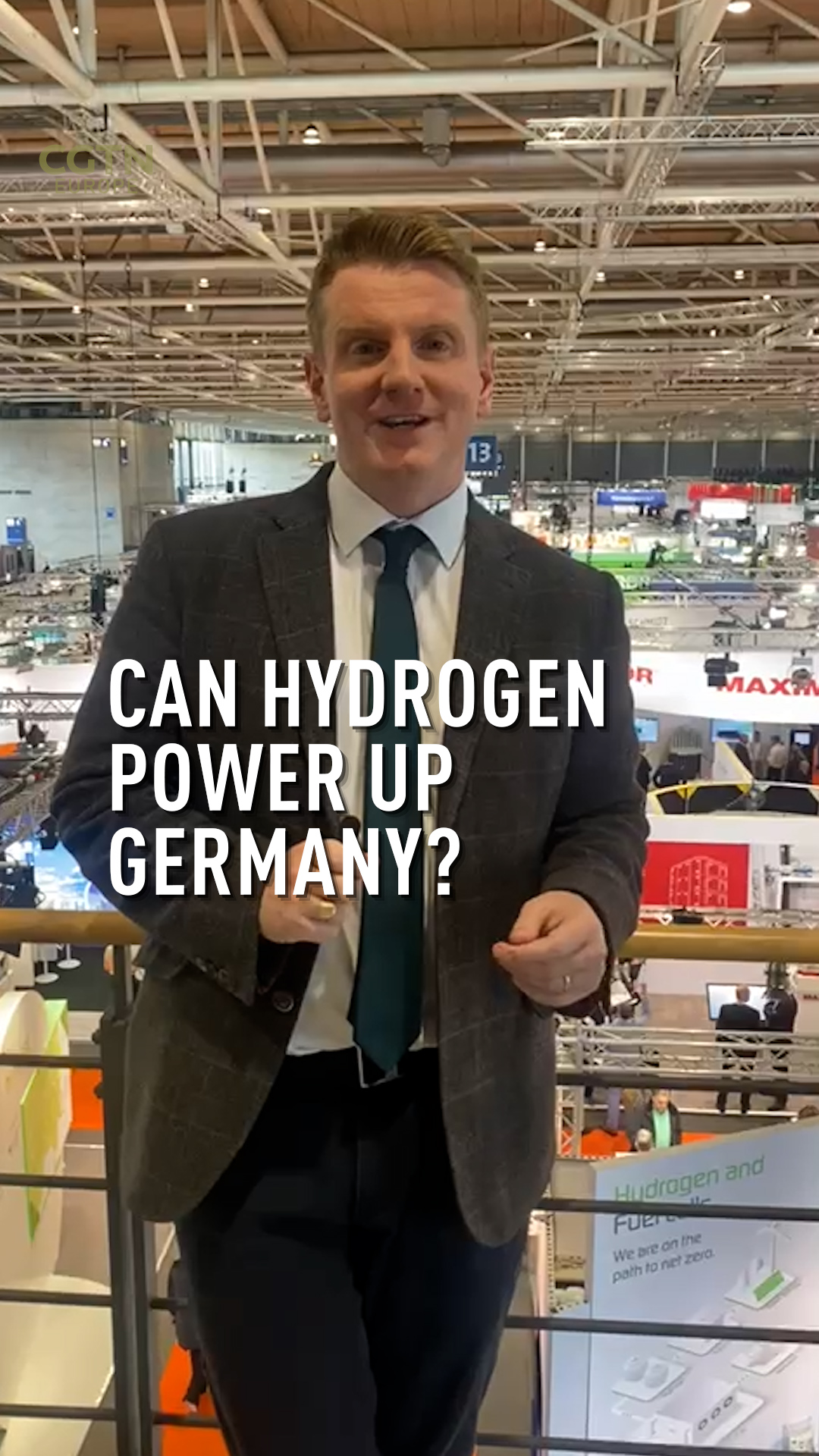01:33

German Chancellor Olaf Scholz has called for an "industrial awakening" across the country.
Doing that will require power. As Germany and other European nations continue to reduce their reliance on importing energy from Russia, alternative options, such as hydrogen, are being explored.
Hydrogen fuel cells are already in commercial vehicles, like buses and trucks around the world, and increasingly being developed to heat and power homes.
Refire, based out of Shanghai, is one of the companies developing this technology. The company's Vice President, Audrey Ma, says hydrogen provides a clean and reliable source of energy.
READ MORE
UK aviation bosses target 'jet zero'
Europe to join global semiconductor race
UK farmers diversify amid energy crisis

German Chancellor Olaf Scholz in Hannover where 300 companies from 25 countries are showing how hydrogen can power Germany's economy./ Fabian Bimmer/Reuters
German Chancellor Olaf Scholz in Hannover where 300 companies from 25 countries are showing how hydrogen can power Germany's economy./ Fabian Bimmer/Reuters
She said: "The product that we make is already fitting into vehicles and into generators that can power homes and power factories, providing electricity with a very clean source, which is hydrogen, that only emits water and heat, to produce electricity.”
Germany recently closed its last three remaining nuclear power plants and turned back to coal and Liquid Natural Gas as short-term solutions.
This is one of the areas where hydrogen can come in, and that's prompted over 300 exhibitors from 25 countries to show off their wares at this year's Hannover Messe.
The international energy agency says that wide-scale uptake of hydrogen power can cut global emissions by 6 percent. According to Banyan Lu, Vice President, Market Management of automation giants Festo, finding a way to provide a carbon-neutral energy source is one of the biggest areas for global cooperation.
"I think hydrogen is a very friendly type of energy to the environment," he said. "It is more reliable compared with coal and oil. If businesses and governments around the world can adopt this mentality, human society will be able to achieve sustainable development.”
Just over 46 percent of the energy Germany used last year came from renewable sources, the vast majority coming from wind. Thomas Schulz, a senior Industrial Engineer for Festo, says a power source is now needed to take up the slack when the wind isn't blowing or the sun isn't shining.
"We need a new energy source to burn it and use it to produce energy whenever we need it, say at night, when we have no solar power, or when we have no wind power," Schulz said.
"An energy made of hydrogen is one we can definitely use for the future. And this is one we can use as part of our new energy puzzle. It's not the only option, but it's part of what we are facing."
Hydrogen power is not a silver bullet to global climate concerns, though. While hydrogen fuel cells themselves do not produce any carbon dioxide, the manufacture of the fuel they run on currently does.
While it is possible to produce green hydrogen, this comes at costs that for now, will mean the prospect of 100 percent climate-neutral hydrogen in our homes and transportation may be just out of reach.
Subscribe to Storyboard: A weekly newsletter bringing you the best of CGTN every Friday